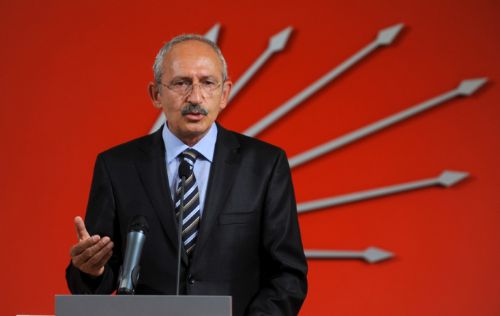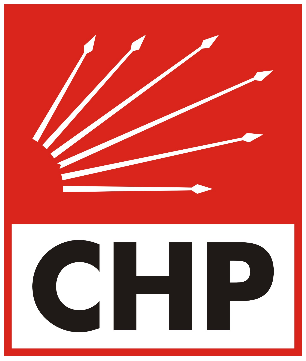GENAR’s quarterly survey was published earlier this week. For national voting intentions, the headline percentages were (with changes from the previous quarter):
AK Party: 36.5 (-1) [Justice and Development Party, governing, religious conservative]
CHP : 22.9 (-1.8) [Republican People’s Party, secular]
MHP : 18.8 (+1.3) [Nationalist Action Party, nationalist]
BDP : 7.1 (+0.5)* [Peace and Democracy Party, pro-Kurdish]
SP : 4.0 (-0.4) [Felicity Party, strongly Islamist]
Others : 10.8 (+1.5) [includes independents]
On a crude uniform swing, assuming the BDP’s 20 MPs run as independents and retain their seats, this would translate into following seats in parliament (with changes from the present situation):
AK Party: 247 (-90)
CHP : 155 (+58)
MHP : 128 (+59)
BDP : 20 (NC)
Such a result in a general election would leave Turkey in coalition territory again: AK would not have enough seats to govern alone, but would need just a handful of seats (i.e. within the broad margin of error) to enter into coalition with BDP. CHP and MHP would also be able to form a government together with these figures, although the balance between these two would be much more evenly weighted.
Of course, the above paragraph is entirely hypothetical. It assumes many uncertain things: that the voting trend would be exactly the same nationwide; that the Democratic Left Party (DSP) would run on the CHP ticket, as it did in 2007; that BDP MPs would run as independents to overcome the 10 percent threshold, as they did in 2007; and that no other party members will try the BDP’s tactic.
The election itself is still 18 months away, and there are a few things we know will happen before then. Abdüllatif Şener’s Turkey Party has yet to make an emergence, while Mustafa Sarıgül’s new centre-left movement has yet to mobilise. Political parties are transient things in Turkey, you never quite know how they come and go, but it seems pretty certain they will make some impact.
Support for the government’s “democratic initiative” – that is, its policy of new rights and institutions for Kurdish citizens – appears to be strictly along party lines. While AK voters support the programme overwhelmingly – 63% – all opposition voters are overwhelmingly against: 87% of CHP, 89% of MHP and, interestingly, 68% of BDP supporters expressed the opinion that the initiative “would not succeed”. Overall, 61% said they found it “not positive” or “not positive at all”.
GENAR also asked about the government’s parallel initiative towards Alevi citizens, which appears to find slightly greater support. AK voters were the only majority supporters again, albeit by a much narrower majority (52%). Opposition party voters ranged from a near-even split (BDP and Democrat Party voters, 48% and 46% in support respectively) to a strong rejection (CHP and MHP voters, 22% and 17% in support).
The survey also appears to suggest:
– The recently-merged Democrat Party has made little impact, polling just 2 percent (change from previous survey unknown).
– The nationalist vote has shifted towards MHP. The Great Union Party (BBP), a spin-off grouping that displays even more extreme right-wing tendencies than the MHP (if such a thing is possible), had done rather well by taking the town of Sivas in last year’s local elections. GENAR’s latest poll suggests support for the BBP has halved. In response to another question, nearly 10% gave MHP leader Devlet Bahçeli as their “favoured politician of 2009”, placing him second only to Prime Minister Recep Tayyip Erdoğan (27%) and ahead of CHP leader Deniz Baykal (8%).
– Abdüllatif Şener, leader of the low-profile Turkey Party, does have some limited recognition. He also featured on the “favoured politician of 2009” list. 1.5% of respondents mentioned him by name; a third of them were CHP supporters, more than any other party, even Mr Şener’s former AK.
– Valley of the Wolves: Ambush, the programme at the centre of the past week’s diplomatic spat with Israel, topped the list of favourite television dramas for 2009.
has nationalist vote. BBP got just 1.6 percent.







